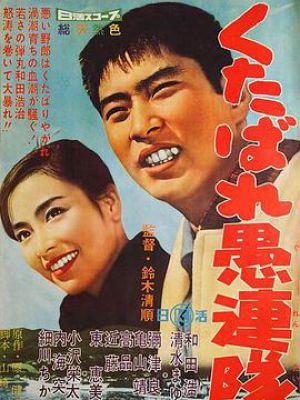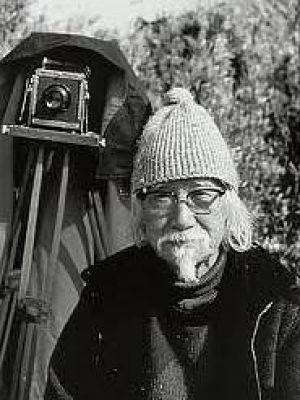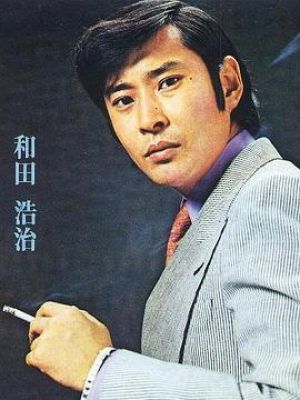
战斗愚连队
(1960)
评分:
-
音画
0.0分 / 0人
-
表演
0.0分 / 0人
-
剧情
0.0分 / 0人
Fighting Delinquents
- 编辑
- 主演:和田浩治/細川ちか子/清水まゆみ/禰津良子/小沢栄太郎/東恵美子/高品格更多
- 类型:剧情 制片地区:日本 影乐酷ID:5040449dv IMDB:tt0054008
- 语言:日语 片长:80 上映:1960-11-23
-
简介:Fighting Delinquents (1960) - also known as Go to Hell, Roughnecks! - is an odd film from director Seijun Suzuki, one that exists almost entirely within the context of the time in which it was created, with none of the audacious visual experiments or notions of narrative transcendence found in later films, like Tokyo Drifter (1966) and Branded to Kill (1967). Instead, the filmmaker offers up a largely straight melodrama with obvious emphasis on the teenage demographic, with the film juxtaposing traditional Japanese values such as honour, family and nobility, against the more contemporary, late 60's ideas of pop art, rock music, young love and defiance. There's also a criminal aspect, with the central character taking on a devious Yakuza syndicate who plan to take over the quaint, island community owned by his family, with the eventual confrontation presented by this set up delivered in a very spirited but sanitised series of fight scenes, with none of the gunplay or stylised violence found in the two better films aforementioned. However, despite the lack of that typically Suzuki sense of stylistic overload, the film remains a great deal of fun; brimming with youthful energy, strong performances and a plot that is immediately comprehensible. It also benefits from a touching, if overly melodramatic final that seems to underline the film's wild spirit and freewheeling sense of joie de vivre. It might be notable to some viewers, already familiar with Suzuki's later work, for a number of early signifiers to the style that would ultimately follow. Firstly, the theme song is very much an early version of the catchy tune eventually heard in Tokyo Drifter, only here it is given a different arrangement and performance by the film's likable lead actor, Koji Wada. It also has some of the director's earlier experiments with colour, most notably in the incredibly camp nightclub that features as the central location in a several scenes, where middle-aged Japanese salary men rub shoulders with the mob amidst an onslaught of very 60's style surf guitar music and a barrage of hip-shaking, belly dancing bikini girls. The influence on Tarantino here is clearly not lost. There's also Suzuki's great use of cinemascope photography, unique use of wipes and dissolves, and bold juxtapositions between the traditional and the very much radical aspects of iconography. In keeping with many of the filmmaker's earlier works, Fighting Delinquents is obviously a B-picture, and as the previous reviewers suggest, it certainly isn't any kind of masterpiece. However, the film is incredibly agreeable and does hold up to repeated viewings. The reason for this is mostly down to the enjoyable plot, which is something that rewards with interesting characters and believable emotional depth, but at the same time, can be enjoyed at a relaxed pace without all the jarring editing structures that Suzuki would eventually develop. On one level its camp and kitsch - the kind of thing that can be enjoyed with tongue firmly in cheek - but at the same time, offers such a bold and striking evocation of the period in which the traditional values of Japan were confronted by the radical ideas and ideologies of progressive, western world to render it a completely worthwhile experience.





